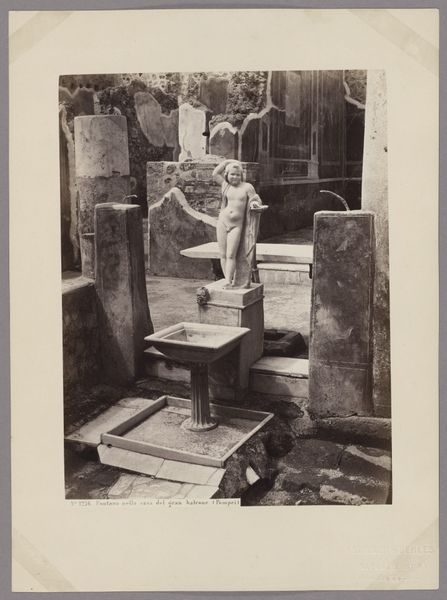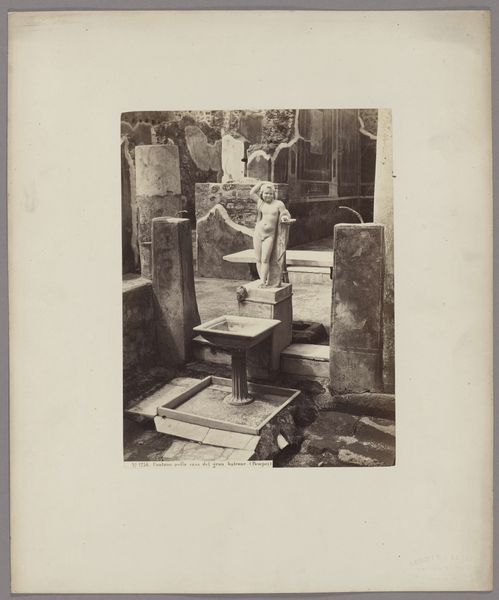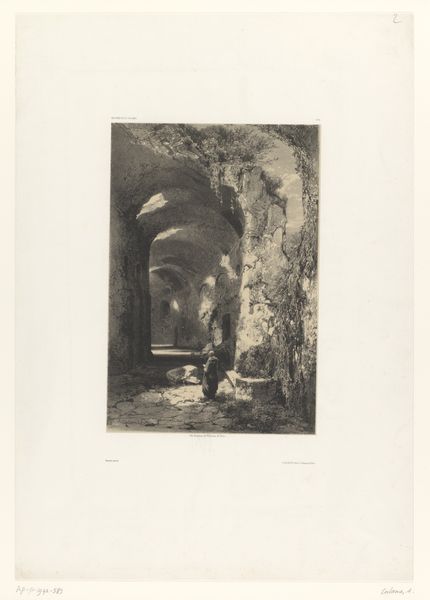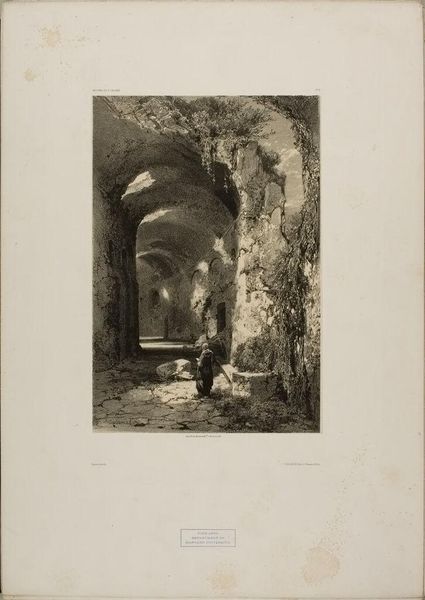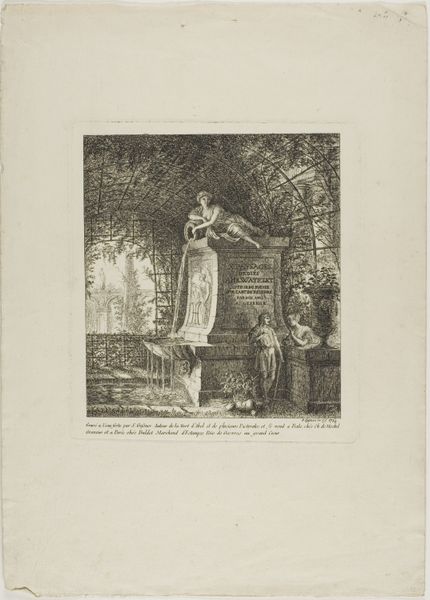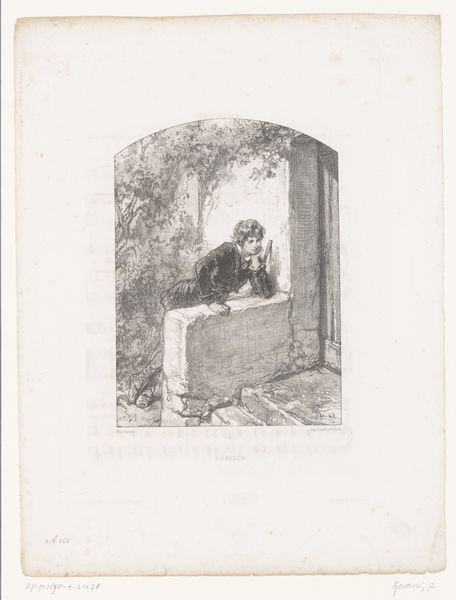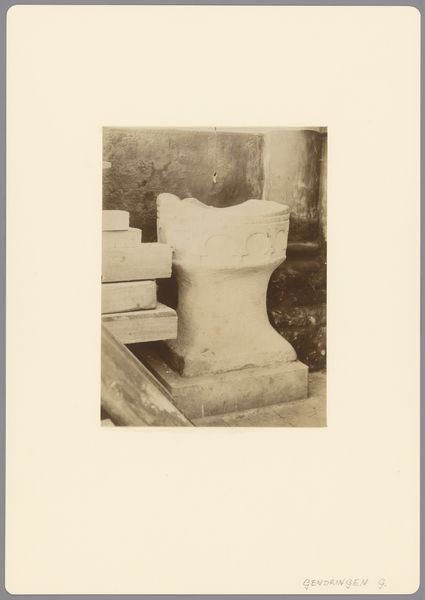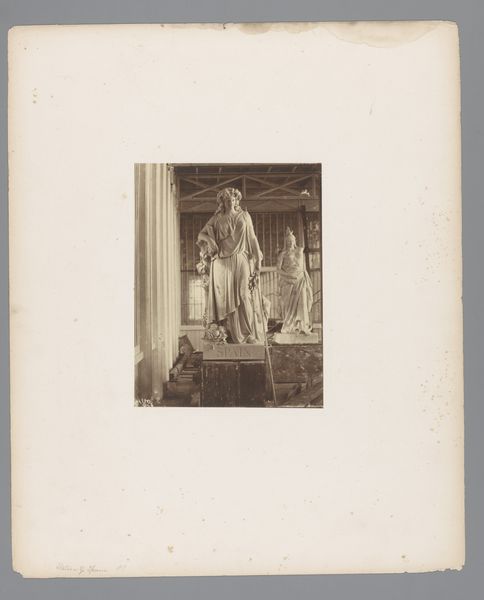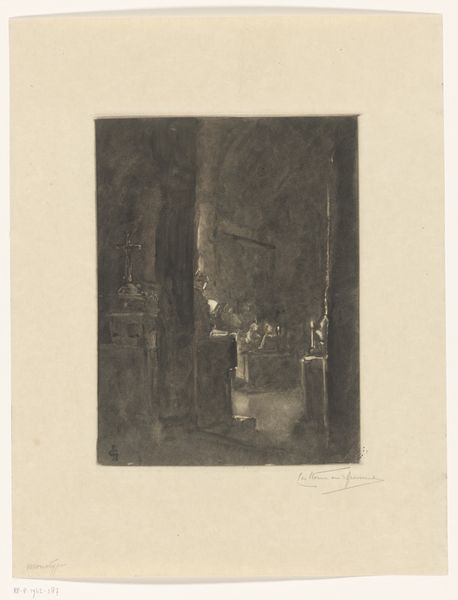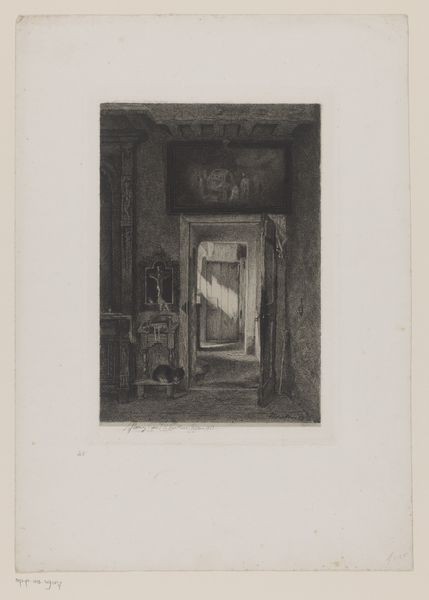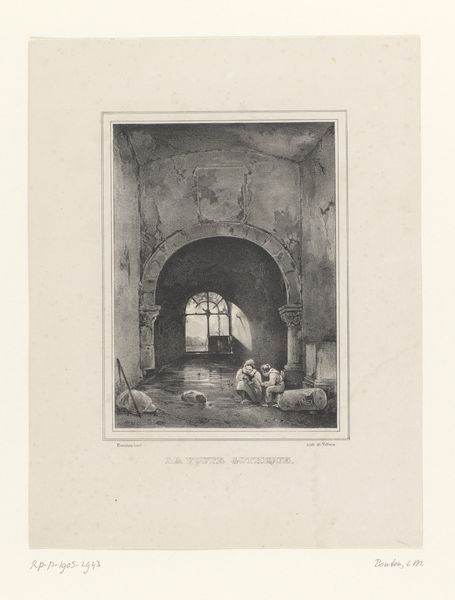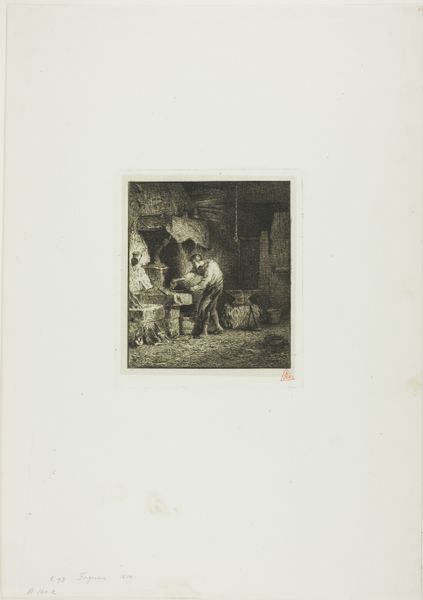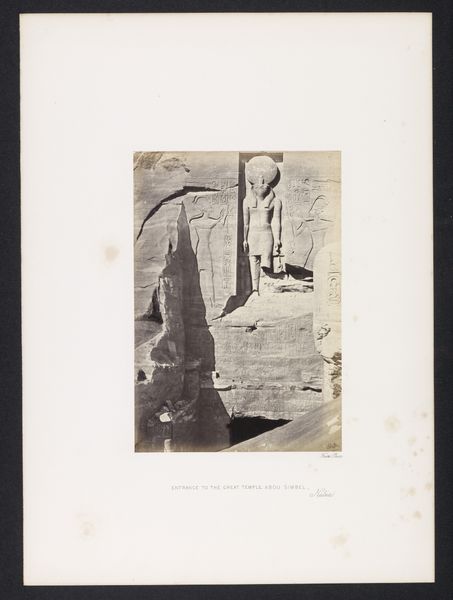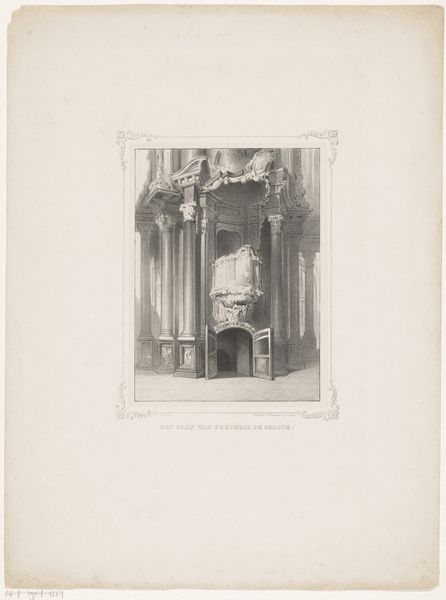
Restanten van een huis in Pompeï met een beeld en een fontein c. 1860 - 1900
0:00
0:00
giorgiosommer
Rijksmuseum
photography, sculpture, gelatin-silver-print
#
landscape
#
classical-realism
#
photography
#
ancient-mediterranean
#
sculpture
#
gelatin-silver-print
Dimensions: height 140 mm, width 102 mm
Copyright: Rijks Museum: Open Domain
Giorgio Sommer made this albumen print of the ruins of Pompeii sometime in the 19th century. Sommer was a German photographer who established a successful studio in Naples, catering to the burgeoning tourist trade. This image encapsulates the 19th-century fascination with the classical world. The ruins of Pompeii, frozen in time by the volcanic eruption of Mount Vesuvius in 79 AD, offered a direct link to the daily life of the Roman Empire. But this photograph isn't just a record; it's a carefully composed scene. Note how Sommer frames the statue and fountain within the crumbling architecture, creating a picturesque view for the eager tourist. The act of photographing and circulating these images also played a role in shaping and preserving cultural heritage. It transformed Pompeii from a site of archaeological interest into a widely recognized symbol of classical antiquity. To fully appreciate Sommer's work, we can delve into archives, travelogues, and histories of photography, all of which allow us to understand both its artistic choices and its place within a broader social and historical context.
Comments
No comments
Be the first to comment and join the conversation on the ultimate creative platform.
